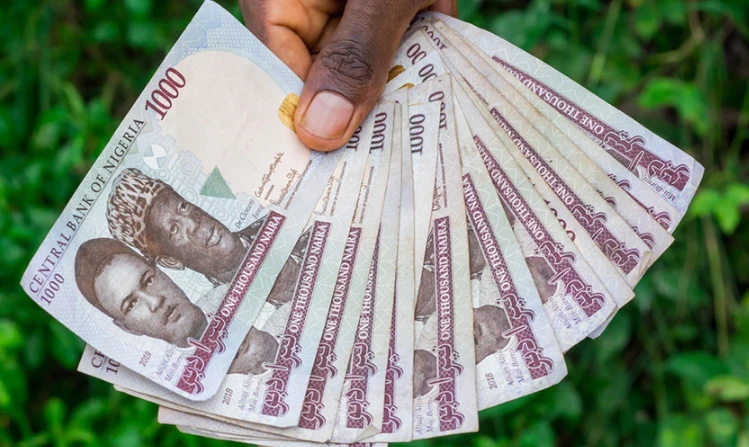The devaluation of the naira and the appalling condition of major routes have taken their toll on hides and skins traders who are struggling to keep their businesses afloat – and, in fact, many have left the trade and are now either working as labourers, selling other goods or sitting idly at home with nothing to do.
The normally hugely busy Gamboru Ngala route – which most traders of all sorts of items use – is virtually in ruins. The condition of the road has not been good since it reopened in February and now the recent excessive flooding has made a complete mess of it.
Traders rely on that road to import and export hides and skins to and from the neighbouring countries of Chad, Niger, Cameroon and Sudan, among others.
It’s the main route for traders of all kinds of items and is regarded as a gateway to opportunities in neighbouring countries, so its importance cannot be emphasised enough.
Hides and skins are a renewable resource of national and international significance. They provide scope for exploitation on a sustainable, long-term basis. More particularly, production and marketing of hides and skins provide opportunities to support and sustain livelihoods, especially in rural areas.
Hides and skins, raw materials for the tanning industry, are renewable resources. Their production is dependent on the rearing, management and disposal of livestock. The availability of hides and skins is of particular importance to the leather industry.
As a resource, hides and skins are the raw materials for diverse types of businesses – such as collecting, processing and distributing – which provide many service jobs in countries where livestock are produced.
Ba Shuwa, deputy secretary of the Borno State chapter of the National Association of Hides and Skin Dealers, told RNI that there were many challenges facing traders, particularly the devaluation of the naira and the dilapidation of major routes.
“I have been selling hides and skins for a long time. We get hides and skins regularly from livestock that are slaughtered for weddings and naming ceremonies. We also get them from the local public abattoirs. Usually, we take the hides and skins to Kano State where we sell them. We also export to other countries.”
Kano in northern Nigeria is the largest commercial hub for the leather industry.
“This business has helped many people to earn a living. But the huge floods recently have caused even more damage to the already dilapidated major routes, some of which remain inaccessible because they were completely cut off by the raging water. As a result, we are unable to import and export our products as we did before. Sometimes, we have to go to Kano State before we have received our imported products which is so stressful and challenging. Even though some traders have started transporting their products using the damaged routes because the floods have subsided now, it’s not like it was before.”
A former hides and skins trader, Bakura Modu Kuliye, said: “In our business we use a lot of foreign currency. When we import or export our products we have to exchange our naira currency for foreign currency before we can start doing business in other countries. When we have finished our dealings, we hardly make any profit because the naira is nowhere near as strong as foreign currencies. Up to 90% of our business is abroad and we have to use their currencies. The devaluation of the naira has hit us hard. So hard, in fact, that some of the traders have left the business and are trying to find other means to make money.”
Kuliye said that if traders were not rich enough, they would not be able to continue selling hides and skins. Because of the “devastating” effect of the naira’s devaluation, many traders have given up altogether.
“I am one of those who has left the business because of all the challenges. Even those traders who are rich are now conducting the business of importing and exporting hides and skins only once in a year, particularly those who are trading in Sudan. If the government does not do something about stopping the devaluation of our currency, there will soon be a lot more people out of work and on the streets.”
Musa Adam Musa Ali Umar said: “I swear to God, our businesses have suffered a major setback. Even the transportation fees has increased enormously. Before the major devaluation of the naira we were paying ₦1,000 to ₦2,000 for transportation. Now it costs up to ₦4,000. The prohibitive cost of living and the devaluation of the naira are huge challenges. In fact, some hides and skins traders have left the business and are now selling oranges or working as labourers. Others who have left the business are sitting at home idly doing nothing. Not so long ago we were able to transport our goods to Furlomi in Chad, among other places, but now we are totally crippled.”
Alhaji Umar Dubu-Dubu has also left the hides and skins trading business.
“I quit the business because I no longer have money to continue. The inflated cost of living and the devaluation of the naira have left me with nothing. The poor condition of the roads has also been a major factor. Also, I do not feel safe travelling through remote places where we have encountered insurgents before.
“So, now, I sell foodstuff, such as cooking oil and rice, among other food items. And I mostly sell it to my former colleagues who are also seriously affected and cannot get by anymore because of the devaluation of the naira and the high living costs.”
SHETTIMA LAWAN MONGUNO








